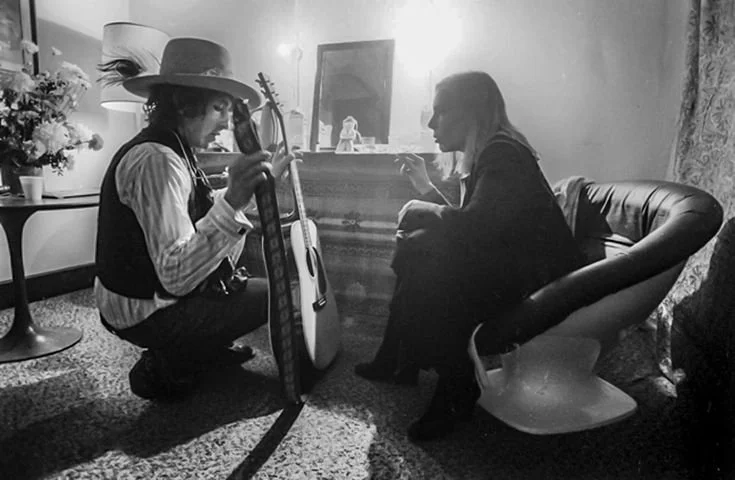The History of Songwriting and the Value of Authenticity
By Chloe Hofer
Hitmakers is a new reality tv show centered around the top songwriters and producers in America coming together to craft “big hits” at songwriting camps for musicians such as John Legend, Shaboozey, and LISA. The premise of the show revolves around these artists working together to create a song that could top the charts, usually only having a mere few hours to do so. Variety describes the show as “revealing yet tone-deaf,” and while this is a fair assessment of the show in its opulent display of how the music industry treats its top sellers, what stood out to me was the inauthenticity of the singers in their lack of authorship.
In one of the first episodes, Legend describes how he wants his new album to feel “authentic,” which caught me off guard. I questioned how, without any role in writing or producing the music he is performing, could it represent his own life or emotions to truly give it a sense of authenticity. Instead, it feels like an artificial creation of an artist, when behind the scenes lie the true creators, those who often go unseen by listeners and underappreciated by the industry as a whole. But how much does the authenticity, or rather, authorship and self-expression of a musician truly matter?
Since the early 20th century, the music industry has largely operated by maintaining a distinct separation between singers and song-writers. Pop music became a mechanized function for top hits, money-makers. The biggest hits originated in “Tin Pan Alley" in New York: named after the loud clanging sounds of songwriters and composers crafting new music. However, they all followed a “clear form and formulaic approach to melody and harmony.” Herbst, Ahlers, and Barber argue that this predictable music structure found across the century is part of an industrialized formula which in fact does not value individuality or unique self-expression, instead it’s part of a broader system which exists to entertain the largest audiences and sell the most records. What listeners are left with are boring over-produced songs, a disrespect of the art of personal authorship and creativity, and an exploitation of their time and money. This early structure has continued to today in creating the song-writing camps of our age, pursuing more assembly-line system, creating “hit factories” for some of the biggest stars of our generation, such as Ke$ha, Katy Perry, and Rihanna.
In the 1960s, artists like the Beatles, Bob Dylan, and Joni Mitchell, began to write their own music in rebellion against the mechanized structure of creating songs for monetary gain. Instead, these artists began infusing their personal ideas, experiences and heart into the music. What came out of this expression was a sense of understanding between the artist and their listeners – music felt more like a personal confession that you could connect with. Listeners responded to that authenticity, the uniqueness of authorship and continue to do so today. Most of the artists coined as geniuses, or who have been included in Rolling Stone’s Top 100, have largely written their own music or had a large role in developing it. By inculcating a part of yourself into the music you are performing, there is a deeper connection to be made with the lived experience. There is a special place in my heart for those who are equally incredible performers and true artists in the lyrics and production.
However, some argue that authenticity does not derive simply from authorship, because listeners can connect to the performance and interpretation of the lyrics. This coincides with the artistry of those behind the scenes, integrating their own experiences, emotions, and time into the art, to make something better than the sum of its parts. Nevertheless, the creatives displayed in Hitmakers and across the industry deserve more credit and appreciation, the true engines behind most artists in the industry.
Ultimately, what I find myself searching for is honesty, creativity, and originality in an industry that can feel like a factory producing the same variations of songs over and over again. Personal authorship can feel like a way to create authentic connections, the kinds of feelings I find in alternative and independent artists, that take time to create something that is truly unique and special.

